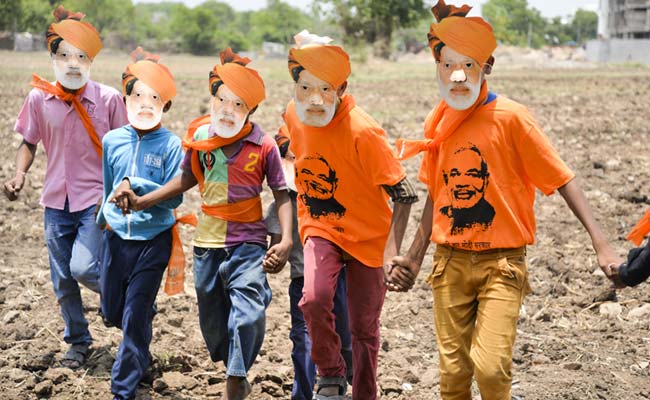
'Sabka Saath Sabka Vikas', but not worth the delay
Shakti Shankar Patra | The Dollar Business  If one were to react to Modi Sarkari’s new Foreign Trade Policy in one word, it has to be ‘Good’. Not excellent, definitely not. But if the question were if it was worth the delay of almost a full year, the answer would be unequivocally ‘No’. It simplifies processes and procedures for exporters, gives incentives to services exporters that they always deserved and encourages the domestic manufacturing industry, but it doesn’t bring to table anything that can be termed a game changer. Let’s talk a bit more it detail. Merchandise exports have always been incentivised in India. But those incentives used to be provided under a plethora of schemes. What the new FTP does is just merge all those schemes. Now that’s obviously a good move. But is it thinking out of the box? Is it innovative? Isn’t it just old wine in new bottle? No, No and Yes. While Prime Minister Narendra Modi’s poll slogan ‘Sabka Saath Sabka Vikas’ was aimed at an altogether different audience, the new FTP has proved that he actually meant it. Long treated in a step-motherly fashion, India’s services exporters have finally got the recognition they deserved as the new FTP has completely removed the divide that existed between them and their merchandise peers by making the incentives they are entitled to freely tradable. If there is one aspect of the new FTP that comes to close to being a potential game changer, it is this move. But to be honest, this move was longtime coming and almost everyone in the industry knew about it. Again, nothing that was worth a year of delay. Similarly, now that ‘Make in India’ has become almost existential to India’s economic growth, at least that’s what the government wants us to believe, the FTP incentivises domestic procurement of capital goods by reducing the export obligation (EO) for them under EPCG. But then again, the reduction in EO is too little and only time will tell if it’s even remotely close to persuading a manufacturer to procure locally. To sum it up, the feeling, when one goes through the one-year delayed FTP, is exactly like what it was when Bharatiya Janata Party released its election manifesto after the start of elections last summer. It just doesn’t have anything which justifies the delay. But it’s still good.
If one were to react to Modi Sarkari’s new Foreign Trade Policy in one word, it has to be ‘Good’. Not excellent, definitely not. But if the question were if it was worth the delay of almost a full year, the answer would be unequivocally ‘No’. It simplifies processes and procedures for exporters, gives incentives to services exporters that they always deserved and encourages the domestic manufacturing industry, but it doesn’t bring to table anything that can be termed a game changer. Let’s talk a bit more it detail. Merchandise exports have always been incentivised in India. But those incentives used to be provided under a plethora of schemes. What the new FTP does is just merge all those schemes. Now that’s obviously a good move. But is it thinking out of the box? Is it innovative? Isn’t it just old wine in new bottle? No, No and Yes. While Prime Minister Narendra Modi’s poll slogan ‘Sabka Saath Sabka Vikas’ was aimed at an altogether different audience, the new FTP has proved that he actually meant it. Long treated in a step-motherly fashion, India’s services exporters have finally got the recognition they deserved as the new FTP has completely removed the divide that existed between them and their merchandise peers by making the incentives they are entitled to freely tradable. If there is one aspect of the new FTP that comes to close to being a potential game changer, it is this move. But to be honest, this move was longtime coming and almost everyone in the industry knew about it. Again, nothing that was worth a year of delay. Similarly, now that ‘Make in India’ has become almost existential to India’s economic growth, at least that’s what the government wants us to believe, the FTP incentivises domestic procurement of capital goods by reducing the export obligation (EO) for them under EPCG. But then again, the reduction in EO is too little and only time will tell if it’s even remotely close to persuading a manufacturer to procure locally. To sum it up, the feeling, when one goes through the one-year delayed FTP, is exactly like what it was when Bharatiya Janata Party released its election manifesto after the start of elections last summer. It just doesn’t have anything which justifies the delay. But it’s still good.
This article was published on April 2, 2015.






 to success.
to success.